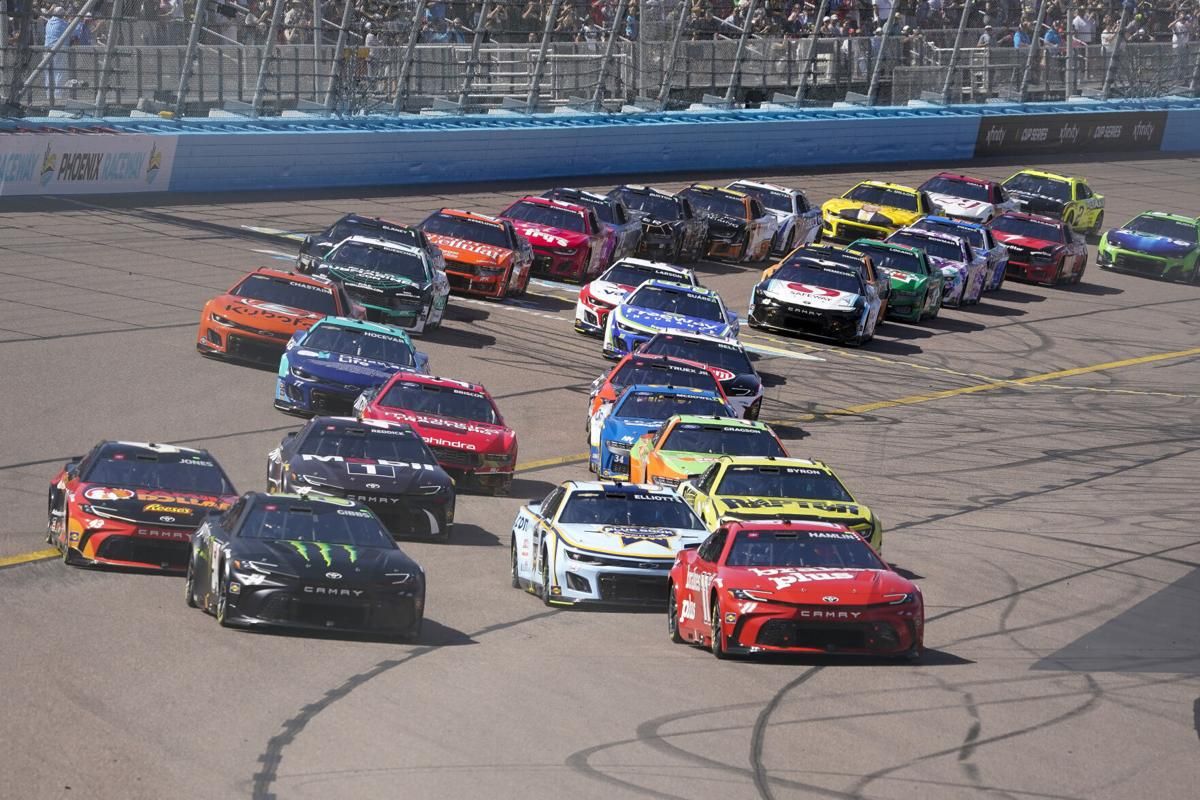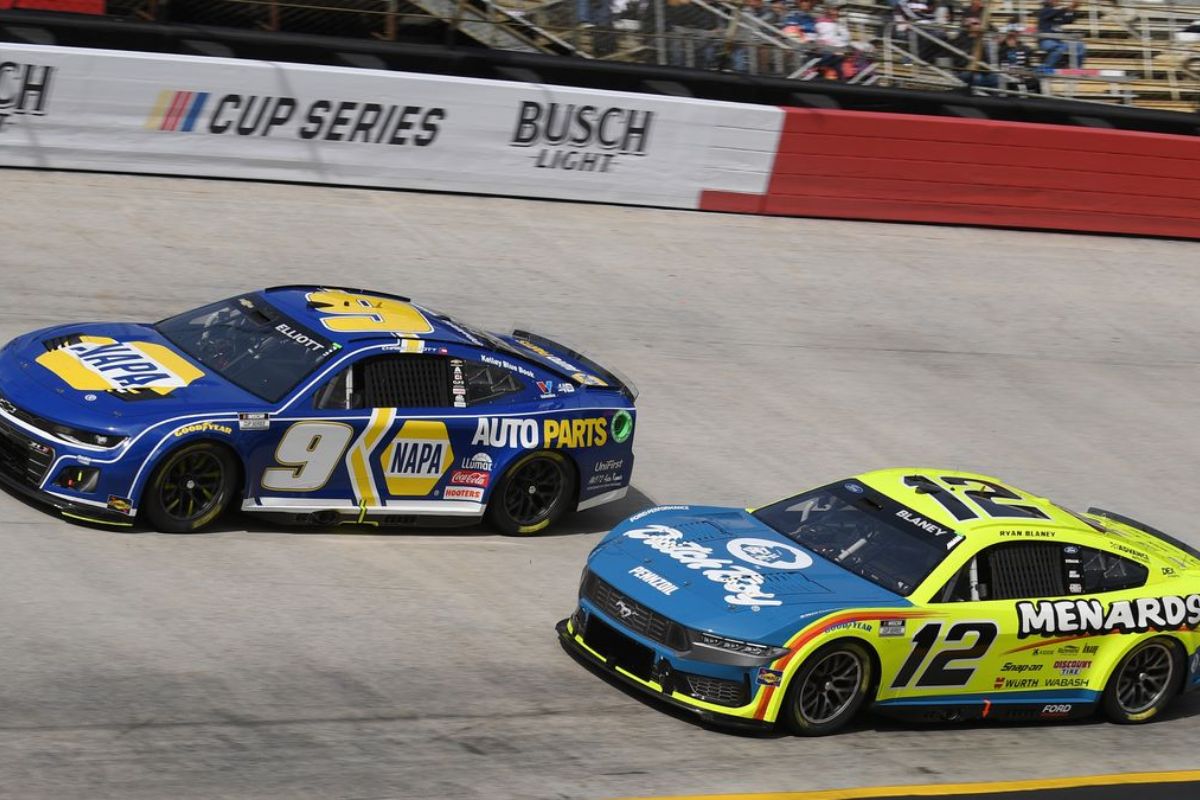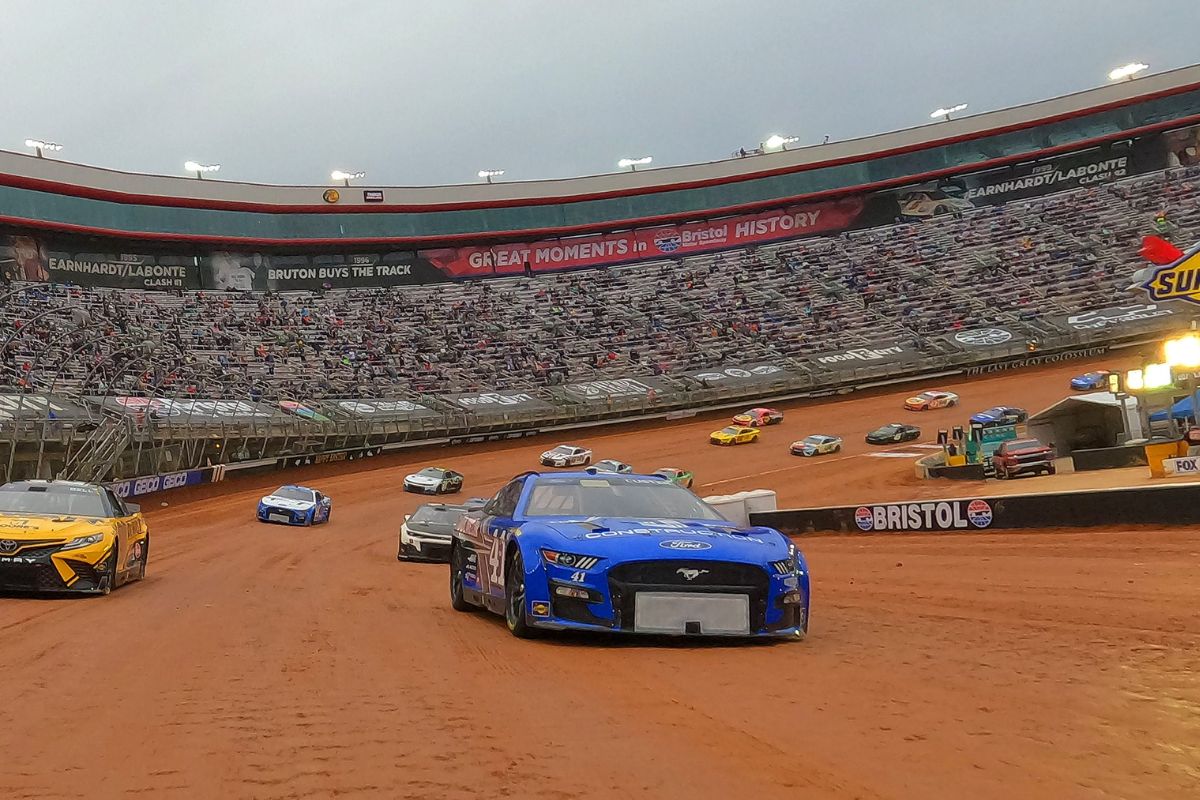Insider Exposes NASCAR’s Easter Sunday Strategy: NASCAR’s decision to schedule races on Easter Sunday reflects a strategic adaptation to contemporary sports consumption patterns, aiming to engage a broader, captive audience during the holiday season. This initiative, marking the third consecutive Easter race, strikingly at Richmond Raceway with the Toyota Owners 400, is part of an evolving approach to maximize viewership and fan engagement. Despite generating controversy, the shift highlights NASCAR’s commitment to innovation and audience expansion. Historical analysis reveals that Easter races, a tradition since 1953, form an integral part of NASCAR’s evolving narrative, showcasing a combination of competitive spirit and strategic marketing. Insights into recent controversies and championship implications further emphasize the complexities and strategic dimensions underlying NASCAR’s Easter Sunday races, promising more layers to uncover for those intrigued by the sport’s dynamic landscape.
Key Takeaways
- NASCAR’s decision to hold races on Easter reflects efforts to adapt to modern viewing habits.
- The Toyota Owners 400 at Richmond marks the third consecutive Easter Sunday NASCAR event.
- Controversy around racing on Easter centers on balancing tradition with the need for audience engagement.
- The strategy aims to capture a captive audience during the holiday period for increased viewership.
- Easter races have evolved significantly since the first event in 1953, indicating NASCAR’s willingness to innovate.
NASCAR’s Easter Sunday Races: Recent Trends and Opinions
In recent years, NASCAR has strategically shifted its scheduling to include races on Easter Sunday, sparking a mix of trends and opinions within the racing community and among its fans. The Toyota Owners 400 at Richmond Raceway, marking the third consecutive NASCAR race held on this holiday, serves as a proof to this evolving tradition. This shift reflects NASCAR’s broader efforts to adapt to modern sports consumption habits, where holidays are increasingly viewed as opportune moments for staging major sporting events.
The decision to hold races on Easter has not been without controversy. Insights from The Teardown podcast, featuring insiders Jeff Gluck and Jordan Bianchi, highlight the polarized perspectives that exist. Gluck’s argument in favor of Easter races hinges on the notion that these events can be smoothly integrated into the holiday’s celebrations. He points out that the timing of evening races aligns well with the conclusion of traditional family festivities, suggesting a potential for these races to complement rather than conflict with Easter observances.

This distinct debate reveals a larger strategic consideration for NASCAR. By choosing to schedule races on Easter, NASCAR is managing the delicate balance between respecting longstanding cultural traditions and seizing the opportunity to engage a captive audience during a holiday. This move potentially reflects a calculated risk, aiming to maximize viewership and fan engagement without alienating a significant portion of its traditional fanbase. As NASCAR continues to evolve its scheduling strategies, the Easter Sunday races serve as a focal point for discussions about the future of the sport in an changing entertainment landscape.
“Why is it a bad thing? Well, I’m dead serious. The NCAA The tournament today was going on today. I didn’t hear anybody complaining about those great games going on people like oh my god That’s an Easter. I’m not gonna watch. Why is that happening?”
“At least NASCAR does it at night where, by the way, most times Easter is done with. You’ve had your church service. You’ve had your brunch. You’ve had your family time. You’re home using on Sunday night… Like I don’t, I understand it’s a holiday. It’s a it’s a religious holiday.” – (Jeff Gluck)
Historical Context: NASCAR’s Easter Races Through the Years
Exploring the history of NASCAR’s Easter races exposes a tradition that, starting with a groundbreaking 1953 event at Charlotte Motor Speedway, has transformed considerably over the decades. The starting of this tradition was not merely a calendar coincidence but a deliberate move to capitalize on a holiday weekend, potentially drawing larger crowds and television audiences. This initial race set the stage for what would become a sporadic yet remarkable element of NASCAR’s schedule, with the 2024 Toyota Owners 400 marking only the 14th occurrence of an Easter Sunday race in the sport’s history.
The evolution of NASCAR’s Easter races reflects broader trends within the sport, including changes in marketing strategies, audience engagement practices, and the scheduling complexities imposed by an expanding series calendar. The decision to host races on Easter, a day traditionally reserved for family and religious observance, indicates NASCAR’s willingness to innovate and adapt in pursuit of increased viewership and fan involvement.
Moreover, the significance of these races extends beyond their holiday scheduling. For instance, the 2024 race, won by Denny Hamlin amidst controversy over a late restart, highlights the competitive intensity and high stakes that have come to characterize Easter Sunday events.

Controversy at Richmond: Hamlin’s Race-Winning Restart
Denny Hamlin’s final restart at Richmond, surrounded by controversy for an alleged premature acceleration, has sparked a heated debate within the NASCAR community regarding the fairness and enforcement of race-start rules. This incident, which played a crucial role in Hamlin securing victory, has raised questions about the consistency of NASCAR’s rule application and the need for potential reforms in race management practices.
In the aftermath, Hamlin addressed the accusations on the Actions Detrimental podcast, attributing his quick start to the positioning of his competitor, Joey Logano. This explanation, while shedding light on his strategic play, has not ended the discourse surrounding the legality and ethics of his actions. The scenario highlights the complexities involved in restarts, where milliseconds and minor positional adjustments can lead to significant advantages or penalties.
The reaction from fellow competitors, with Logano securing a second-place finish and Kyle Larson finishing third, adds depth to the discussion. It prompts an examination of how drivers interpret and react to their peers’ strategies during critical moments of a race. This incident at Richmond serves as a case study in the broader conversation about sportsmanship, competitive integrity, and the challenges of enforcing distinct rules in high-stakes racing sports.
Ultimately, the controversy at Richmond invites stakeholders to reflect on the balance between strict rule adherence and allowing drivers the flexibility to engage in tactical play. It also highlights the importance of clear, transparent communication from NASCAR officials regarding rule enforcement, ensuring that all competitors have a shared understanding of the boundaries within which they are racing.
“Clearly Joey is laying back and you know if we really want to get into technicalities, you should not be laying back but he laid back enough to where I could see him start to creep towards me.”
“Now at that point, I’m thinkng in my head, ‘I’m not going to let him roll to me’ and then as soon as the gap closes, take off because then he’s got an advantage he’s going to be pushing me. He’s going to pull out of line, you know, he dictated the restart not me, and the same with the 19. I saw him he was back on my right around my door and I saw him creeping forward.” – (Hamlin)
Championship Implications: Hamlin’s Standing in NASCAR
While the Richmond race controversy has sparked discussions on fairness and rule enforcement, it has also greatly impacted Denny Hamlin’s position in the NASCAR Cup Series championship standings, positioning him as a strong contender. The victory at Richmond not only highlighted Hamlin’s driving prowess but also propelled him to a prominent spot in the championship race, placing him third in the standings. With a mere 18-point gap separating him from the leader, Martin Truex Jr., Hamlin’s pursuit of the championship title is more plausible than ever.
This narrow margin emphasizes the volatile nature of the NASCAR Cup Series championship battle, where a single race can greatly alter the path of a driver’s season. Hamlin’s current position is a confirmation of his consistency and competitive edge in this season’s races. It places him in a desirable position, making him a formidable opponent in the championship race. The shifting of Hamlin’s standing are multifaceted; not only does it heighten the competition for the championship title, but it also sets the stage for an intense rivalry among the top contenders.
Furthermore, Hamlin’s reach to the championship lead, despite the Richmond race controversy, highlights the importance of strategic prowess and adaptability in navigating through the NASCAR Cup Series. It demonstrates that success in this championship is not solely dependent on outright speed but also on the ability to capitalize on opportunities and handle the intricacies of each race. As the season progresses, Hamlin’s current position will without a doubt influence the strategies employed by his competitors, making the race for the championship even more compelling.

News in Brief
The approach utilized by NASCAR to hold races on Easter Sunday, as evidenced by historical trends and recent controversies, such as Hamlin’s controversial restart at Richmond, highlights a complex interplay between tradition, viewership, and competitive integrity.
These decisions not only mirror NASCAR’s adaptability to changing societal norms and fan expectations but also suggest the broader implications for championship standings and the sport’s future trajectory.
This dynamic approach to scheduling reveals NASCAR’s commitment to balancing tradition with innovation.
Our Reader’s Queries
Q: How many times has NASCAR raced on Easter Sunday?
A: NASCAR will race on Easter Sunday at Richmond Raceway for the first time since Rusty Wallace’s 1989 victory. This marks the 14th time in NASCAR history that a Cup Series race will be held on Easter.
Q: Does NASCAR have strategy?
A: Driver skill and car performance are equally crucial in utilizing drafting effectively, a key strategy for race victories. NASCAR’s stringent regulations on engine power, components, and body design prevent teams from gaining unfair advantages, emphasizing fair competition.
Also Read: Discovering Martinsville’s Dark Side: NASCAR’s Ultimate Challenge?


